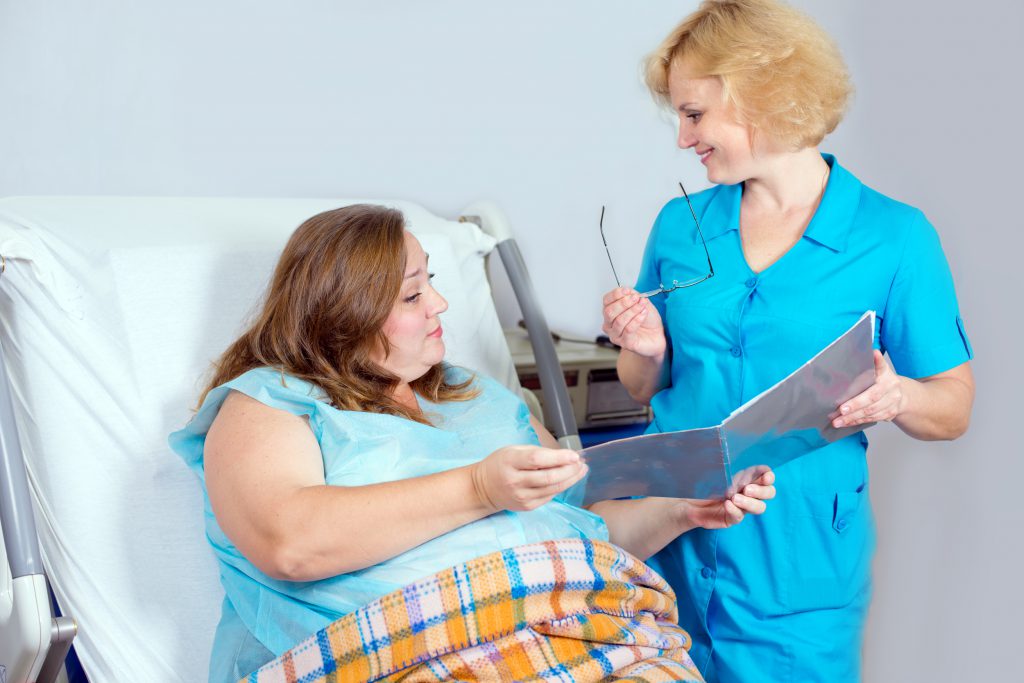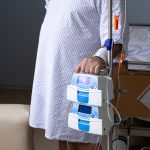The gastric sleeve procedure can be an effective way to help you lose weight, keep the weight off, and reduce your risks of obesity-related health conditions. However, to get the best results, you’ll need to make a commitment to prioritize your health during your gastric sleeve surgery recovery and beyond. Below, you’ll find a breakdown of how to prepare for your weight loss surgery, what will happen on the day of the procedure, and what you can expect during your gastric sleeve surgery recovery.
Preparing for your gastric sleeve surgery
In the weeks before your surgery, your physician will help you make sure that you’re completely ready for the procedure. They may recommend tests, such as blood tests, to get a better picture of your overall health. You may also need to get any current health conditions, such as diabetes or high blood pressure, under control before the surgery. If you smoke, your doctor will recommend stopping a few weeks before the surgery and not smoking again until after your recovery.
In addition to preparing your body for the surgery, you will want to prepare yourself for life after surgery. To do this, your doctor may recommend seeing a nutritionist to discuss how you should change your diet after surgery. They may also recommend starting a physical activity program to help get your body in better shape for the procedure and set you up for a healthier recovery.
Don’t be afraid of asking questions. The weeks leading up to your procedure are a great opportunity to make sure you know exactly what to expect from your gastric sleeve surgery and what you can do to set yourself up for a fast recovery. This is also your time to learn how your diet and lifestyle will need to change after surgery to support your weight loss and health goals. Your doctor may be able to recommend a bariatric surgery support group for you to connect with other people who are going through the same experience.
What to expect the day of your gastric sleeve surgery
On the day of your gastric sleeve surgery, you’ll arrive at the hospital or outpatient surgery center and check in. You’ll receive general anesthesia, which will make sure that you’re asleep and pain-free during the procedure. Then, your surgeon will start working to remove a large portion of your stomach, leaving behind a smaller stomach about the size and shape of a banana. Gastric sleeve surgery takes between one and two hours to complete.
Most weight loss surgeries are done laparoscopically. This means that the surgeon will perform the procedure through a few small cuts in your abdomen instead of one bigger incision. Doing the surgery this way carries fewer risks than open surgery. It may also decrease pain, scarring, and recovery times.
After your surgery, you’ll be monitored for complications as the anesthesia wears off. If you have the surgery at an outpatient surgery center, you will go home the same day. If your procedure is performed in the hospital, you may be asked to stay one or two nights as a medical team monitors your recovery.
Outpatient centers are just as safe as hospitals but could help you save money on your gastric sleeve surgery.
How long does it take to recover from gastric sleeve surgery?
Recovery from your bariatric surgery will happen in a few stages. First, right after the surgery, you’ll stay in the hospital or outpatient surgery center. The medical team will monitor your vitals and look for signs of complications. It’s normal to feel pain or discomfort in your abdomen following the procedure. You may be given medication to help lessen any soreness or swelling. Before you go home, the medical staff will give you instructions on caring for your incisions and avoiding complications during recovery.
Your physician will probably encourage you to walk around after your surgery, possibly as early as three to four hours after you get out of the operating room. Even starting with ten minutes of slow walking a day can get you on the road to burning calories, developing muscles, strengthening your heart and bones, and increasing your metabolism.
It’s normal to feel fatigued during the first two weeks after your surgery because you’ll be following a low-calorie liquid diet. However, your energy levels should increase quickly once you start eating soft foods, about two weeks after your surgery. You’ll be able to return to work or school about two to four weeks after your procedure.
You should wait at least four weeks after gastric sleeve surgery to start any exercise that’s more intense than walking and at least six weeks to start any strength training routine. As you introduce more physical activity into your daily life, try to start slow and follow your doctor’s recommendations.
You’ll have frequent follow-up visits with your physician during the first few months after your surgery. They will want to check on your health and recovery, as well as how you’re coping with life after gastric sleeve surgery.
How does your diet change after gastric sleeve surgery?
After any bariatric surgery, you’ll be advised on specific changes you should make to your diet to aid in your recovery and weight loss. Your diet will change during the different stages of your recovery. However, you’ll need to drink water and take daily dietary supplements during each step to avoid dehydration and malnutrition.
Immediately following your surgery, you’ll be placed on a diet of sugar-free, noncarbonated liquids. This gives your stomach time to heal without being stretched by solid foods. Liquids you may drink during this week include broth, herbal tea, unsweetened juice, and sugar-free popsicles.
About a week after your gastric sleeve surgery, you’ll be able to eat soft or pureed foods. These can include cottage cheese, yogurt, and strained cream soups. You can also puree solid foods mixed with water, including scrambled eggs, flaked fish, canned fruit, and cooked vegetables.
Two months after your procedure, your body may be ready to handle solid foods. During this stage, you should slowly reintroduce different things into your diet. Try new foods one at a time and see how your body responds. To help avoid nausea or stomach pain, you should stop eating before you start feeling full. Foods that may cause discomfort at this stage include:
- Raw vegetables
- Carbonated liquids
- Bread
- Tough meats
- Fried foods
- Popcorn
- Spicy foods
As your food options start to increase after your gastric sleeve surgery recovery, you have the opportunity to create a habit of eating healthy, nutrient-dense foods that will help you achieve your weight loss goals.
When you set out on this journey, your first step will be to find an experienced surgeon that you trust. New Choice Health can help with that. Our network of top healthcare providers is dedicated to providing quality medical care at a price that you can afford. Use New Choice Health’s Bariatric Surgery Assist program to find a fair cost for your gastric sleeve surgery today.







